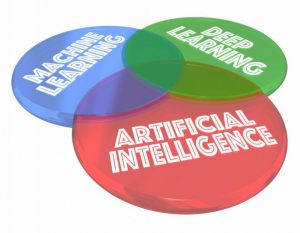In a new white paper on artificial intelligence (AI), the Commodities Futures Trading Commission (CFTC) identifies its role in this technology.
Of AI, the paper noted, “Approaches to AI have evolved. Early calculating machines gave rise to ‘expert systems’
“Subsequent waves of AI have focused on enabling machines to acquire new understanding based on experience. Such ‘machine learning’ has become a key element to AI.”
The CFTC said it has three main priorities regarding AI.
- Promote responsible AI and innovation
- Understand application of AI for markets and participants
- Identify trends and impacts
The paper continued noting that LabCFTC, the CFTC’s fintech initiative, would be proactive by
- Maintain open door with the innovative community
- Track developments to understand market impacts and regulatory implications
- Identify opportunities to leverage technologies, including AI, at the agency as well as in the markets CFTC oversees.
The paper noted that CFTC could leverage AI to do four things
- Read a complex marketplace and distinguish salient activity
- Use data to develop market models and identify risk factors
- Apply the models to conduct ongoing market and risk surveillance
- Help identify market manipulation, abusive trading, and fraud
For instance, the paper noted, AI technology can help the CFTC identify spoofing, “An AI system can train on and then develop a model to detect potentially illicit activity. AI systems can greatly enhance market surveillance with ‘always on’ capability, speed, and models that can improve over time.”

Spoofing involves placing buy or sell orders which will not be executed but rather intended to artificially move the price of a security in a certain direction.
AI can also predict significant market moves, according to the paper, “Predicting catastrophic market events, such as the cascading defaults of 2008, is like predicting the weather. There are many variables which can generate divergent predictions, and some key information may be overlooked or not available. This can impede corrective action.
“A strength of AI is its ability to identify correlations in vast data sets. Such correlations can be helpful in systemic risk monitoring, which depends on predicting when circumstances may require intervention.”
The CFTC regulates derivative markets not particular technologies, like AI, but as the paper noted, when AI is used by derivative market participants, “CFTC registrants that use AI, or engage with firms that do, remain responsible for all applicable requirements.”
Much derivative trading is now done by and with the help of trading software; AI will soon take over many of these systems, according to an article in Medium.
“Could artificial intelligence in trading become the new normal? Advances in technology and new standards surrounding automated trading are pushing us ever closer to transforming the industry. If this sounds very much like a science fiction movie, we can assure you it is not.”
As the paper noted, all these machine learning applications must adhere to CFTC rules and regulations, “Use of AI systems by CFTC registrants should comply with all applicable legal rules and standards.”









